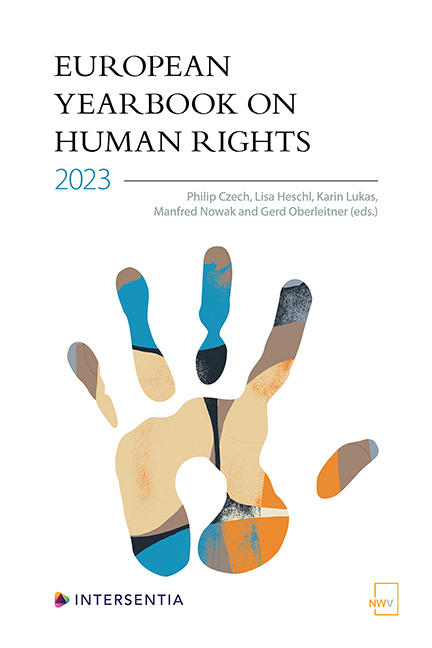Human Rights and Unilateral Economic Sanctions: A New Perspective on a Twisted Relationship
Published online by Cambridge University Press: 04 April 2024
Summary
ABSTRACT
Literature and practice outlining the relationship between human rights and unilateral economic sanctions veer in two opposite directions. One strand of literature advocates for sanctions to redress grave human rights violations. This position has been epitomised in the legislation allowing the imposition of economic sanctions for human rights violations occurring abroad (Magnitskystyle sanctions ). The opposing voice criticises unilateral economic sanctions irrespective of their objectives and forms, mainly by emphasising their negative repercussions on the enjoyment of human rights. This position is officially adopted by the Special Rapporteur on the negative impact of unilateral coercive measures on the enjoyment of human rights, and is reflected in numerous reports on the matter, which are traditionally supported by the most-sanctioned countries.
Th is contribution aims to explore perplexing and multifaceted relations between human rights and unilateral economic sanctions, an issue that is politically tainted, and which has been insufficiently analysed from a legal standpoint. Retreating from the clashes between these prevailing old, unworkable dichotomies, this contribution argues for a more nuanced portrayal of the subject matter.
INTRODUCTION
The debate surrounding the legality of unilateral economic sanctions has intensified over the past few years, especially in recent months. This has been a recurring theme, carrying along strong political overtones. Against the background of these discussions, this contribution focuses on the twisted relationship between unilateral economic sanctions and human rights. It aims to explore perplexing and multifaceted relations between human rights and unilateral economic sanctions, an issue that is politically charged, and which has been insufficiently analysed from a legal standpoint.
The term ‘economic sanction’ can be used to denote any one of a broad range of diverse restrictions. These can be classified based on the actors that employ them (collective, regional, unilateral and private), depending on their scope (comprehensive and targeted), according to the reasons for their imposition (to counter terrorism, to oppose unconstitutional changes of government, to limit the proliferation of nuclear weapons, to remedy grave human rights violations, etc.).
Discussion of the economic sanctions’ legality is closely intertwined with the actors who impose these restrictions. Sanctions authorised by the United Nations Security Council (UNSC) according to Chapter VII of the Charter of the United Nations (UN Charter), i.e. collective economic sanctions, are presumed to be legal under international law.
- Type
- Chapter
- Information
- European Yearbook on Human Rights 2023 , pp. 171 - 204Publisher: IntersentiaPrint publication year: 2023



